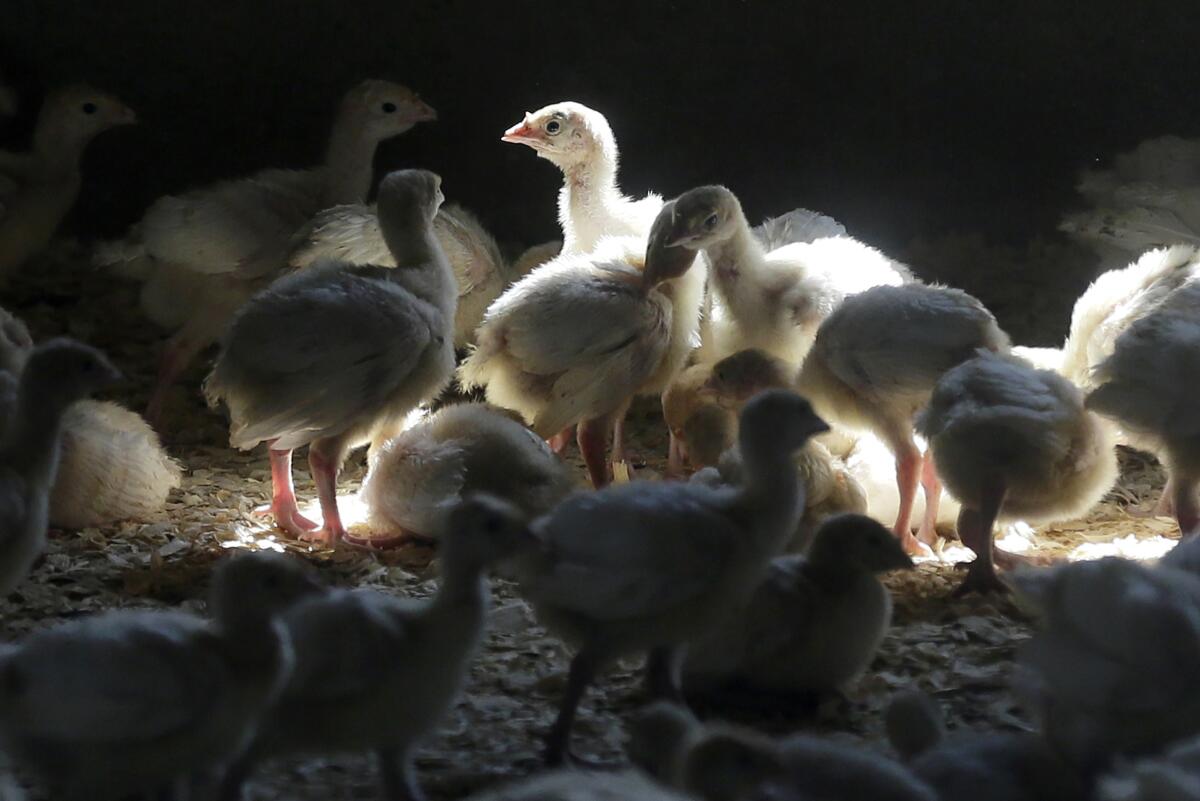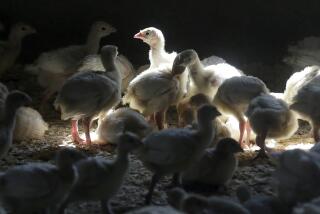First case of human bird flu infection confirmed in Colorado

DES MOINES — A Colorado prison inmate has become the first human to test positive for bird flu in an outbreak that has resulted in the deaths of millions of chickens and turkeys, but federal officials say they still see little threat to the general public.
The U.S. Centers for Disease Control and Prevention said Thursday evening that the man who tested positive had been in a prerelease program and was helping to remove chickens from an infected farm. The man, who was under age 40, reported fatigue for a few days but has since recovered, state health and CDC officials said in a statement.
The man was isolated and is being treated with an antiviral drug. Other people involved in the bird removal operation in Colorado have tested negative, but they are being retested out of an abundance of caution.
“The inmate was part of a prison work crew composed of inmates nearing release, which had been working at the farm before a case of bird flu was confirmed there on April 19,” said Lisa Wiley, a spokeswoman for the Colorado Department of Corrections. When bird flu was detected at the farm in Montrose County, the inmates were asked to help in the process of killing and removing the birds.
Agriculture officials have reported an outbreak on one Montrose County farm with 58,000 broiler breeder chickens.
Nearly 7 million chickens and turkeys in 13 states have been killed this year due to avian influenza, thought to be spread by infected wild birds.
Despite the infection, the CDC considers the threat to the general public to be low because spread of the virus to people requires close contact with an infected bird.
Signals that could raise the public health risk might include multiple reports of infections in people exposed to birds, or identification of spread from one infected person to a close contact. The CDC also is monitoring the bird flu virus for genetic changes, which could indicate the virus is adapting to spread more readily from birds to people or other mammals.
The current strain of bird flu, known as H5N1, has been spreading among backyard and commercial chicken and turkey flocks in the U.S. since late February. Viruses have been found in U.S. commercial and backyard birds in 29 states and in wild birds in 34 states. More than 35 million chickens and turkeys have been killed and removed to avoid spread, the U.S. Department of Agriculture reported.
The outbreak has spread to more than 30 states; two zoos reported cases of the highly contagious virus.
The CDC said it has tracked the health of more than 2,500 people who have been exposed to H5N1 virus-infected birds but that this was the only confirmed case to date.
The CDC said it was possible the man only had the virus present in his nose but that his body was not infected. Colorado public health officials say repeat testing on the man was negative for influenza. A nasal swab positive test result meets the agency’s criteria for considering it an infection.
“The appropriate public health response at this time is to assume this is an infection and take actions to contain and treat,” the CDC statement said.
Associated Press reporter Colleen Slevin in Denver contributed to this report.







